Sales and support teams are expected to deliver personalized service at scale, but they only have so many hours in a day. Juggling routine questions with high-stakes deals means something has to give. Often, it is the speed and quality of customer interactions that suffer, putting revenue and relationships at risk.
This is where conversational AI creates a real advantage. It goes beyond basic chatbots to handle complex conversations, understand customer intent, and provide helpful answers instantly. By automating routine communication and integrating with systems like your CRM, it gives your team the leverage to focus on closing deals and solving more complex problems.
To help you understand its impact, this guide explains conversational AI and how the technology works. We’ll cover the different types available, the business results you can expect, and the steps for a successful implementation with a platform built for seamless integration.
Try monday CRMKey takeaways
- Conversational AI can cut your operational costs by 30% or more while handling unlimited customer conversations 24/7 without breaks or overtime pay.
- Unlike basic chatbots, conversational AI understands context and learns from every interaction, delivering personalized responses that actually solve customer problems.
- monday CRM’s AI features automatically categorize leads, generate follow-ups, and spot stuck deals — turning every conversation into a sales opportunity, without manual work.
- Most businesses see ROI within 3-6 months by capturing more leads, reducing support costs, and freeing up teams to focus on high-value work.
- Success requires well-defined goals, quality training data, and seamless integration with your existing systems to create smooth workflows that customers love.
What is conversational AI?
Conversational AI is technology that enables computers to engage in natural, human-like dialogue, whether you type or speak, instead of relying on rigid commands. According to ISG Research, it leverages natural language processing (NLP) and advanced models like LLMs and GPT to understand what you mean and respond instantly with relevant, personalized information. The use of conversational AI is expanding rapidly, with the global market forecast to approach $50 billion by 2031, as more businesses embed these solutions to transform customer and employee interactions.
Think of it like having a smart assistant who never sleeps, enhancing your AI customer experience. You ask questions in your own words, and it gives you helpful answers right away.
The big difference from old-school chatbots is that conversational AI actually gets what you mean. While basic chatbots only recognize specific keywords, conversational AI understands context and remembers what you talked about earlier.
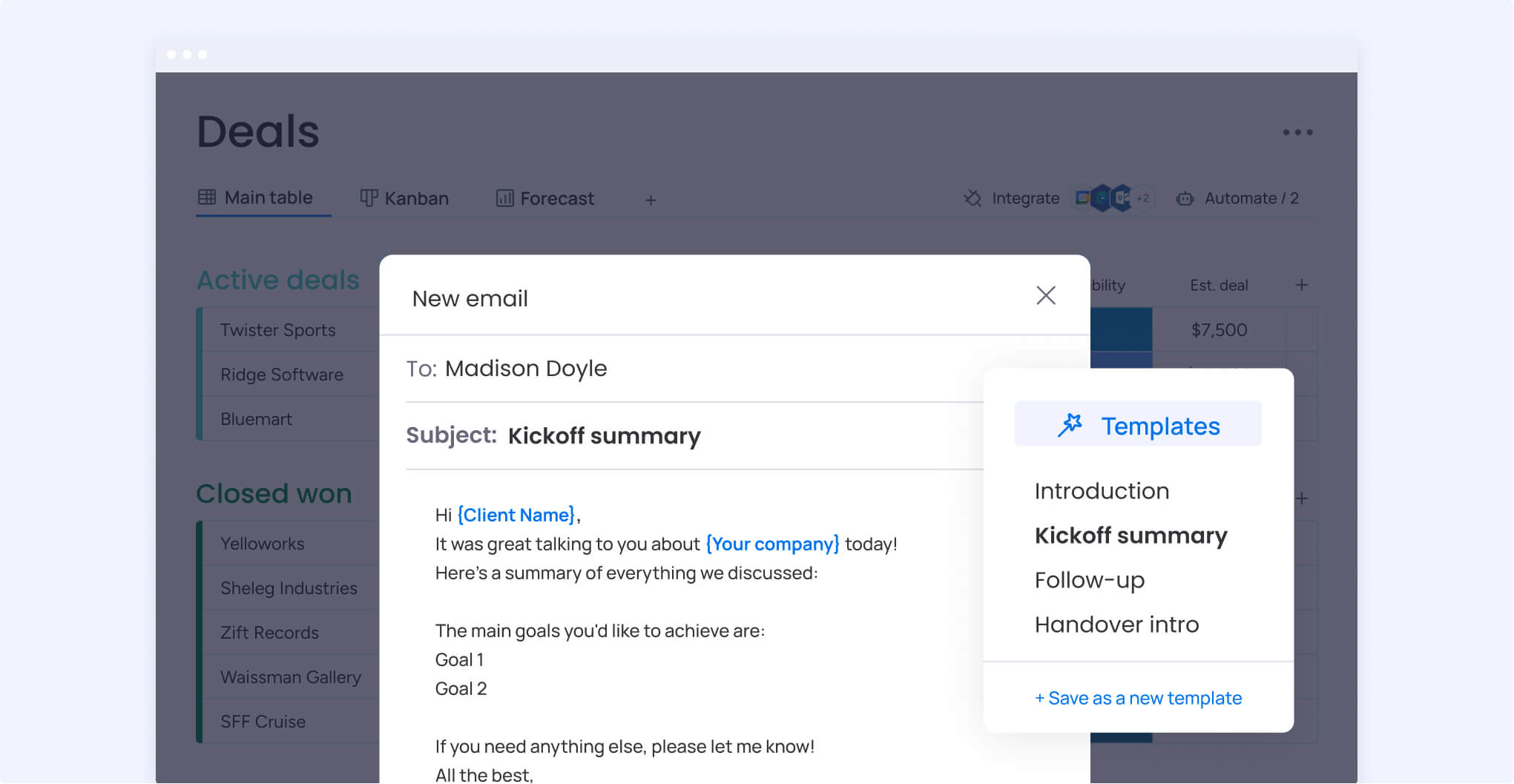
How does conversational AI work?
So how can a computer can actually hold a conversation? Well it’s not magic — conversational AI uses three main parts that work together to understand you and respond helpfully.
Natural language processing (NLP)
NLP is how computers make sense of human language. It breaks down your sentences and figures out what you really mean, even when you use slang or make typos.
NLP is the engine that helps the AI understand the nuances of human language. It deciphers intent, context, and even sentiment, ensuring every interaction is meaningful. Here’s what NLP handles for you:
- Understanding variations: Whether you say “I want to return this” or “How do I send this back,” NLP knows you mean the same thing.
- Catching context: It figures out if “balance” means your bank account or work-life balance based on your conversation.
- Reading between the lines: It picks up on emotions and urgency in your messages.
Machine learning and advanced AI models
This is where conversational AI gets smarter over time. Machine learning watches patterns in thousands of conversations and learns what works.
Large language models (like the tech behind ChatGPT) help the AI understand complex questions and give responses that sound natural. The more people use it, the more accurate it becomes.
Real-time business system integration
Here’s where things get really useful. Conversational AI connects to your business systems like your CRM, inventory, or support tickets — to give personalized help.
When integrated with platforms like monday CRM, the AI can pull up customer history, update records, and even trigger follow-up actions automatically, a key aspect of CRM with AI. No more switching between systems or copying information manually.
Try monday CRM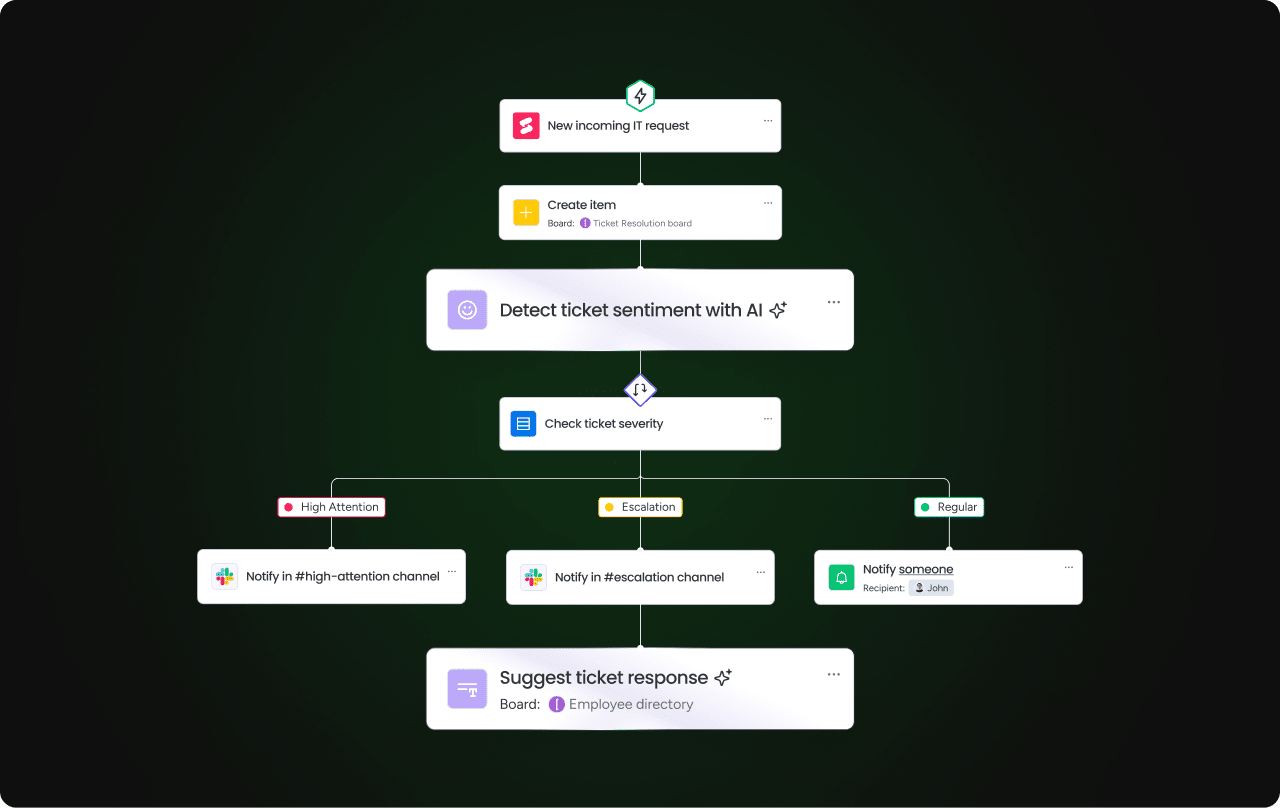
Types of conversational AI technologies
Not all conversational AI is the same. Different types serve different purposes, and knowing which one fits your needs saves time and money.
AI-powered chatbots and virtual agents
These are the smart cousins of basic chatbots. They handle complex questions, understand what you really want, and give personalized answers based on who you are.
Here’s what makes them special:
- Handle the unexpected: They can answer questions they’ve never seen before
- Remember context: They know what you talked about five minutes ago
- Learn and adapt: They get smarter from every conversation
Voice-enabled conversational systems
Voice AI lets you talk instead of type. It converts your speech to text, figures out what you need, then talks back to you.
You’ll find these in phone support systems and smart speakers. They’re perfect when your hands are busy or typing isn’t convenient.
Conversational AI platforms for business
These are complete solutions built for companies. They work across all your channels—website, mobile app, social media—and connect to your existing business systems.
The best part? You can customize them for your specific industry and needs without starting from scratch.
5 ways conversational AI transforms your business
Ready to see real results? Here’s how conversational AI changes the game for businesses like yours.
1. Slash operational costs by 30% or more
Conversational AI handles routine questions 24/7 without coffee breaks or overtime pay. One AI system can manage hundreds of conversations at once.
You’ll save money on staffing while actually improving service, further supported by sales prediction methods to gauge future performance. In fact, Gartner predicts that by 2026, conversational AI will reduce agent labor costs by $80 billion, allowing your human team to focus on complex issues that really need their expertise.
2. Scale customer support without growing your team
Peak season hitting hard? No problem. Conversational AI handles unlimited conversations simultaneously.
No more scrambling to hire temporary staff or making customers wait on hold. The AI manages the volume while maintaining quality service every time.
3. Capture leads and engage customers 24/7
Potential customers don’t always shop during business hours. Conversational AI qualifies leads, answers product questions, and books appointments even at 2 a.m., similar to an AI sales agent dedicated to after-hours support.
With monday CRM integration, every lead gets captured and routed to the right salesperson automatically. You never miss an opportunity because someone visited your site after hours, showcasing AI for sales in action.
4. Deliver instant responses that delight customers
Nobody likes waiting. Conversational AI responds immediately to every inquiry with accurate, helpful information.
Customers get consistent answers whether it’s their first question or their tenth. This builds trust and keeps them coming back.
5. Turn every conversation into actionable intelligence
Every chat becomes valuable data. Conversational AI spots trends, identifies common problems, and shows you exactly what customers want, forming a vital voice of customer feedback loop.
This insight helps you improve products, refine services, and make smarter business decisions based on real customer feedback.
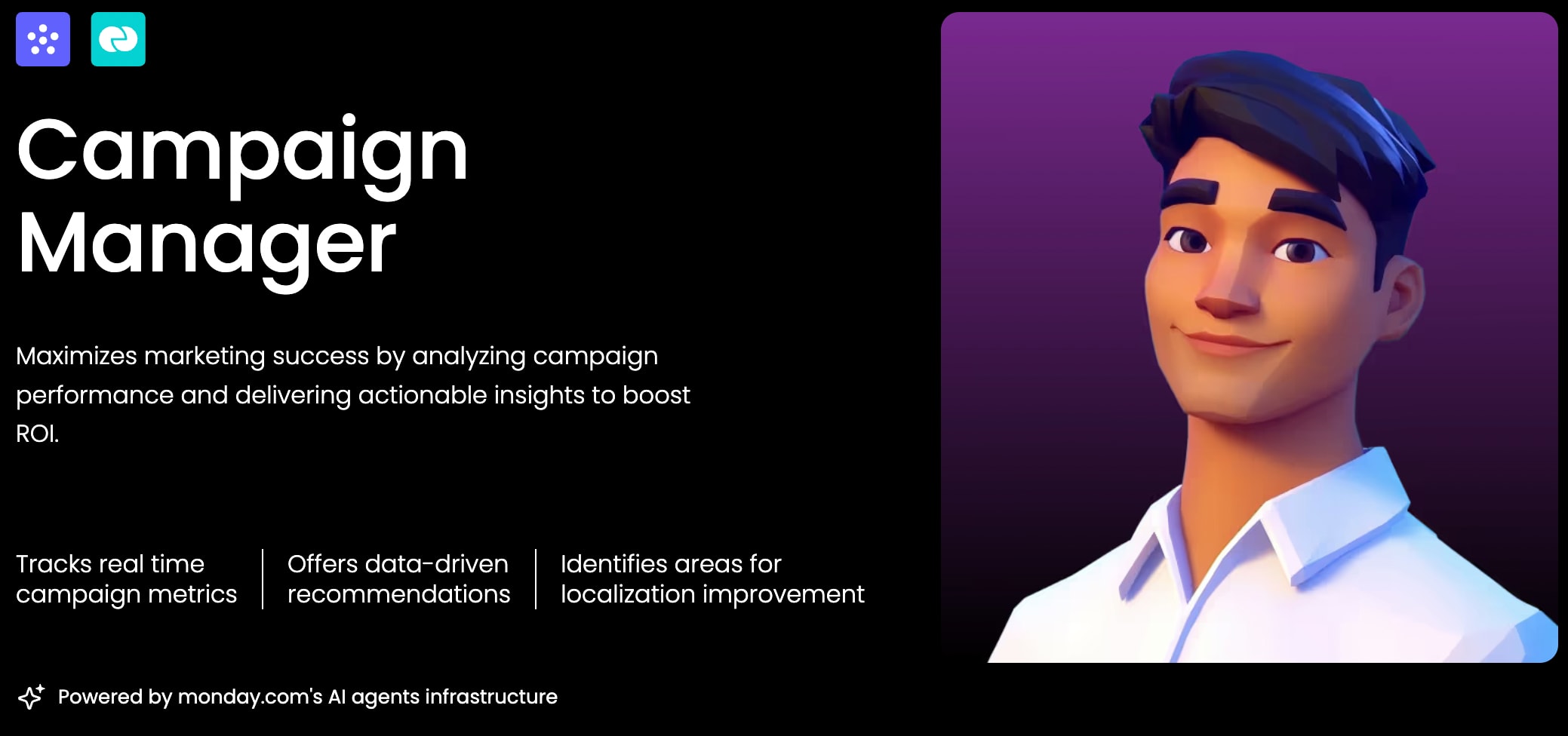
Real-world conversational AI applications
Let’s look at how businesses actually use conversational AI to solve real problems and create opportunities. From customer service to sales, the applications are transforming how companies operate and grow.
Customer service and support automation
Conversational AI transforms customer service by handling everything from simple questions to complex troubleshooting. It processes returns, tracks orders, and provides technical support without making customers wait, aligning with the needs of a B2C CRM.
When issues get complicated, the AI smoothly hands off to human agents with all the context they need. Your team jumps right into solving problems instead of asking customers to repeat themselves.
Sales acceleration and lead qualification
Smart sales teams use conversational AI to engage every website visitor instantly. The AI asks qualifying questions, provides product demos, and schedules meetings with the right salespeople, streamlining sales prospecting efforts.
Integration with monday CRM means every interaction updates automatically in your system. Your sales team always knows which leads are hot and what they’re interested in, a crucial factor in B2B sales.
Employee experience and HR automation
Your employees need quick answers too. Conversational AI handles HR questions about benefits, policies, and procedures instantly.
New hires get guided through onboarding, IT issues get resolved faster, and your HR team spends less time on repetitive questions. Everyone wins.
Healthcare and patient communication
Healthcare providers use conversational AI for appointment scheduling, medication reminders, and basic health questions. Patients get immediate help while medical staff focus on patient care.
The AI knows when to escalate urgent issues to real doctors, ensuring patients get appropriate care quickly.
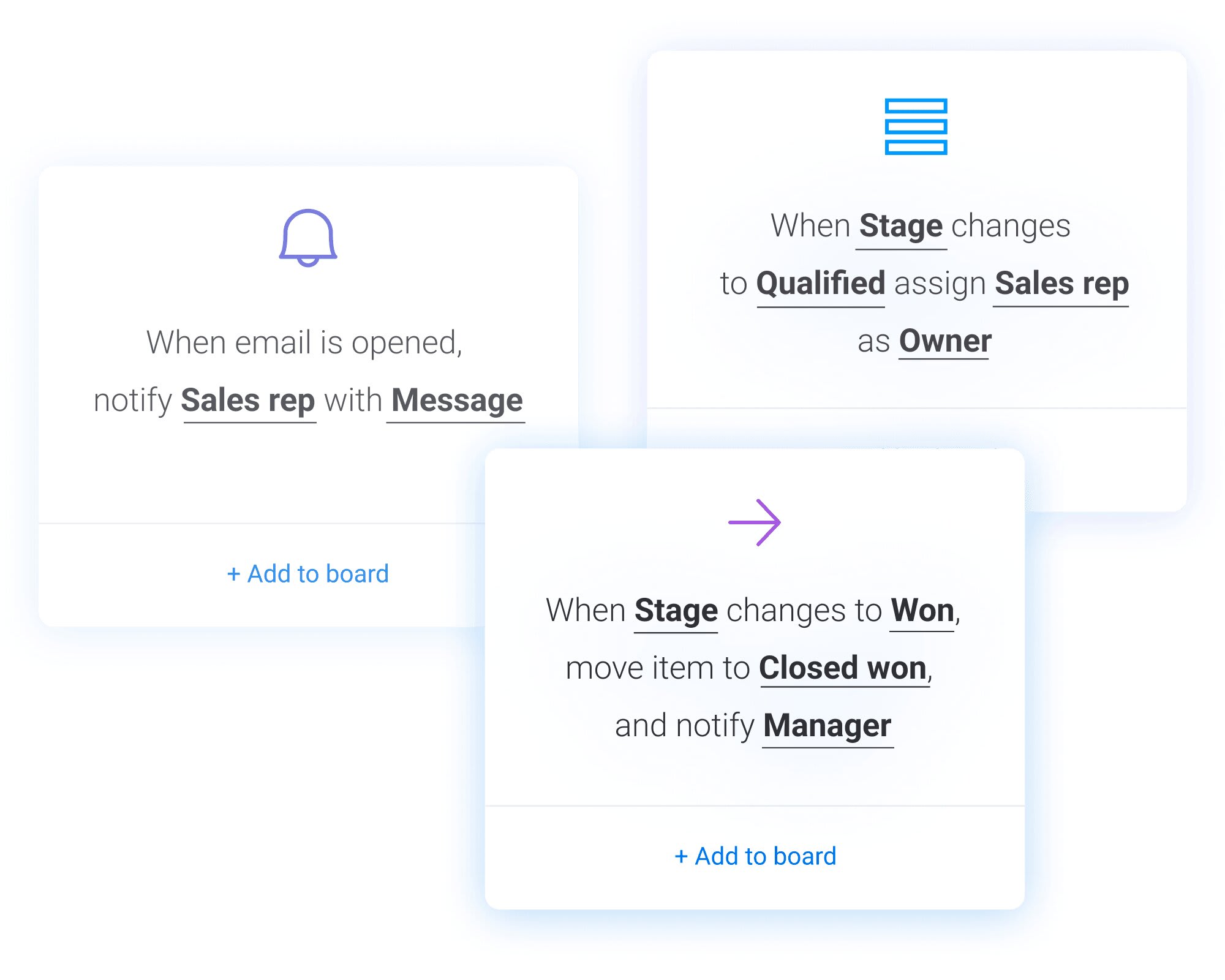
Conversational AI vs chatbots: Understanding the difference
Confused about the difference? You’re not alone. Here’s what sets them apart.
Traditional rule-based chatbots
Think of these like a choose-your-own-adventure book. They follow preset paths and only understand specific commands.
They work fine for simple stuff like “What are your hours?” but fall apart when someone asks something unexpected. They rely on predefined scripts and lack the ability to adapt or learn from interactions.
AI-powered conversational solutions
These understand what you mean, not just what you say. They handle different ways of asking the same question and remember your conversation history.
Key advantages of AI-powered solutions:
- Understand intent: They know “I need help with my order” and “Something’s wrong with what I bought” mean the same thing
- Learn continuously: Every conversation makes them smarter
- Provide personalized help: They remember who you are and what you need
Conversational AI vs generative AI
Both use AI, but for different jobs. Conversational AI specializes in back-and-forth dialogue. Generative AI creates content like articles or images.
6 steps to implement conversational AI successfully
Want conversational AI that actually works? Follow these steps to get it right the first time.
Step 1: Define specific business objectives
Start with specific goals. Maybe you want to cut support costs in half or capture twice as many leads. Pick measurable targets you can track.
Write down exactly what success looks like. This guides every decision you make next.
Step 2: Map your customer journey
Figure out where customers get stuck or frustrated. Look at your most common questions and biggest pain points.
Understanding when and why people contact you shows you where conversational AI can help most. Focus on high-impact areas first.
Step 3: Select the right conversational AI software
Choose software that plays nice with your existing systems. Look for platforms that integrate easily, scale with your business, and fit your budget.
Make sure it connects seamlessly with tools like monday CRM so everything works together smoothly.
Step 4: Train your AI with quality data
Feed your AI real conversations and common questions from your business. Define how it should respond to different situations.
Set up clear rules for when the AI should hand off to humans. Good training makes the difference between helpful AI and frustrated customers, especially since 60% of employees believe better training would improve change management.
Step 5: Integrate with your CRM and tech stack
Connect your conversational AI to monday CRM and other business systems, a crucial step when 57% of employees report an increase in the number of software tools they have to use. This lets the AI access customer information and update records automatically.
Proper integration means personalized conversations and zero manual data entry. Everything flows smoothly between systems.
Step 6: Monitor performance and optimize
Track important metrics like customer satisfaction and resolution rates. See what’s working and what needs improvement.
Use this data to make your AI smarter every week. Small tweaks lead to big improvements over time.
How monday CRM's conversational AI features transform your business
monday CRM brings powerful AI capabilities that make your sales team unstoppable, showcasing next-level sales tech for successful outcomes. The platform’s conversational AI features work right inside your existing workflows.
With AI Blocks, your team can automatically categorize leads, extract key information from conversations, and generate personalized follow-ups, similar to an AI email generator approach. The Digital Workforce includes specialized helpers like the Deal Facilitator that spots stuck deals and suggests next steps.
Everything integrates seamlessly with monday CRM’s customer management features. Every conversation builds a complete picture of your customers while automating the boring stuff that wastes selling time.
Try monday CRM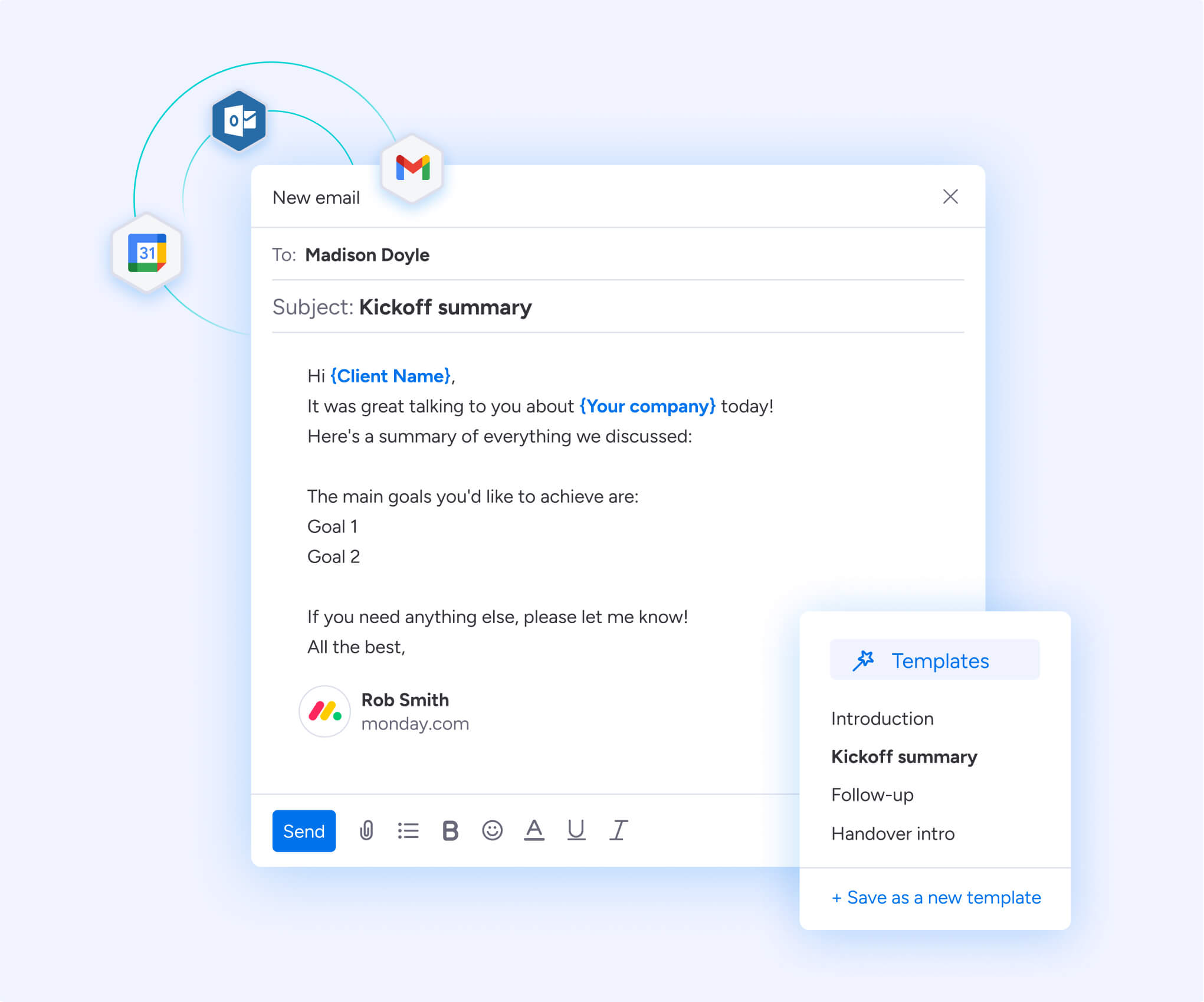
Start your AI transformation today
Conversational AI isn’t just another tech trend — it’s how modern businesses stay competitive, representing the future of CRM. The technology delivers real results through cost savings, happier customers, and smarter operations.
Success comes from choosing the right approach and platform for your needs. With monday CRM’s integrated AI capabilities, you get intelligent automation that actually makes sense for your business. Deploy smart chatbots, automate lead qualification, and turn every conversation into growth opportunities. With monday CRM’s integrated AI capabilities, you get intelligent automation that actually makes sense for your business. Deploy smart chatbots, automate lead qualification, and turn every conversation into growth opportunities.
FAQs
Is ChatGPT a conversational AI?
Yes, ChatGPT is conversational AI that uses large language models to have human-like text conversations. It shows how advanced conversational AI can understand context and generate helpful responses.
What are examples of conversational AI?
Common examples include customer service chatbots on websites, voice assistants like Alexa or Siri, and virtual agents that schedule appointments or qualify sales leads automatically.
How much does conversational AI cost to implement?
Conversational AI costs range from free basic platforms to enterprise solutions costing thousands monthly. Most businesses see returns within 3-6 months through reduced costs and increased sales.
Can conversational AI integrate with CRM systems?
Yes, modern conversational AI platforms integrate directly with CRM systems to access customer data and update records automatically. This creates seamless experiences for both customers and teams.
What is the difference between conversational AI and conventional artificial intelligence?
Conversational AI specifically handles human language and dialogue, while conventional AI covers broader applications like data analysis and image recognition. Conversational AI focuses on communication.
How quickly can businesses see ROI from conversational AI?
Most businesses see initial returns within 3-6 months through reduced support costs and more leads captured. Full benefits including advanced analytics typically appear within the first year, supported by a sales forecast template to project future growth.

